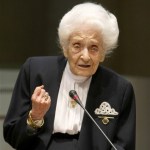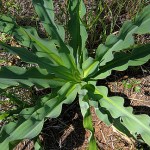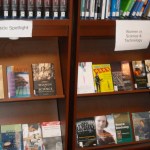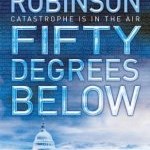women in science
Wednesday was Ada Lovelace Day!
Ada Lovelace Day is an international day of blogging to celebrate the achievements of women in technology and science.
The first Ada Lovelace Day was held on 24th march 2009 and was a huge success. It attracted nearly 2000 signatories to the pledge and 2000 more people who signed up on Facebook. Over 1200 people added their post URL to the Ada Lovelace Day 2009 mash-up. The day itself was covered by BBC News Channel, BBC.co.uk, Radio 5 Live, The Guardian, The Telegraph, The Metro, Computer Weekly, and VNUnet, as well as hundreds of blogs worldwide.
In 2010 Ada…
Happy Ada Lovelace Day! Today we blog to celebrate women in technology and science and remember Ada Lovelace, the woman considered to have written the world's first computer program back in the 1840's.
So to celebrate, here's a clip of an interview with Rita Levi-Montalcini, one of my favorite Sassy Bitches of Scienceâ¢. At age 100, she is the oldest living Nobel laureate, sharp as a tack, still working, and a sassy dresser to boot. Her story is incredible and inspiring (especially in light of what I wrote about yesterday on DIYbio, oppression, and opportunity). Turned away from her position…
I try not to travel in the spring. Instead of the stale air of the airplane, I try to get out to the mountains, the beach, the garden or to the nearby foothills.
Last weekend my daughter and I (who is 8 years old today), went for a walk. I thought she was strong enough to do the 5 mile hike in the Stebbins Cold Canyon Preserve so off we happily went. As we started up the VERY steep hill, her trust began to dissipate. Then the inevitable "I want to go home".
I definitely did not want to go home. More than that, I did not want her to want to go home.
"Look, a soap plant, the people that were…
Yesterday was International Women's Day and since I'm a firm believer in International Better Late Than Never Day, I thought I thought I'd add my little contribution to the celebration. Or at least highlight a great post from someone else.
Computer Scientist Amy Csizmar Dalal's recent blog post Does Barbie's career matter? has some great things to say about the importance of role models and positive examples for girls who might be interested in scientific or technical careers:
I was a somewhat normal (don't laugh too hard) but nerdy kid growing up who loved math and science. And while I had…
Hunkered down in an elegant hotel in Washington DC, watching the epic storm continue unabated, I cannot help but think of award winning author Kim Stanley Robinson's "Fifty Degrees Below", the second novel in his three-part trilogy.
In this book, Washingtonians experience the most intense winter on record. As rigid temperatures shut down the city, the main character, Frank, is living in a treehouse in Rock Creek Park and heroic women scientists (I especially like that part) are trying to force the self-absorbed politicians to put in place effective policies to avert a global catastrophe. It…
Applications for the UK awards opened yesterday for the 2010 awards, where four women will be awarded a £15,000 fellowship to help with the scientific research. The awards are now in their 12th Entries can be made online, with an awards ceremony held in June.
The L'Oréal-UNESCO For Women in Science awards were the first international scientific awards dedicated to women and have become an international reference of scientific distinction - with two of the 2008 winners, Professor Ada Yonath and Professor Elizabeth Blackburn, going on to win Nobel Prizes in Chemistry and Medicine…
Here are some of the thoughts and questions that stayed with me from this session. (Here are my tweets from the session and the session's wiki page.)
One of the things I found interesting about this session was that the session leaders' approach to the broad issue of promoting gender and ethnic diversity in science, engineering, technology, and M [mathematics here? I get the impression that sometimes the M in STEM is math and sometimes it's medicine, but I'm happy to set this taxonomic issue aside] was to look at particular initiatives, activities, or responses from smaller communities…
I've been reading both geoblogs and women-in-science blogs for a while, and watching the support networks grow around them. So when I looked through the Geological Society of America's list of session topics for the 2009 annual meeting and saw one about "Techniques and Tools for Effective Recruitment, Retention, and Promotion of Women and Minorities in the Geosciences," I asked Anne Jefferson (who blogs with Chris Rowan at Highly Allochthonous) whether she would be interested in submitting an abstract with me. We didn't know whether blogs were really useful or not, though, so (with the help…
From the American Geophysical Union's Twitter feed ( @theAGU ):
Looking for a geoblogger to discuss blogging at Communicating your Science workshop Sunday Dec. 13 morning #AGU09 Contact mjvinas@agu.org
(I'm not going. Have fun in San Francisco - I'll be at home, grading.)
Recently, a bit of a kerfuffle has sprung up around the choice of entries included in The Oxford Book of Modern Science Writing, edited by Richard Dawkins. The book contains 83 examples of the "finest writing by scientists." However, DrHGG noted:
Of 83 texts Professor D has selected 3 written by women. That's about 3.6%. How hard could it be to find a handful more? Like 10%? It would still be a wiener fest.
She also notes that of those 3, one is even left out of the "Featured Writers" section, as it was co-written with her husband (who received all the credit).
Sheril brought this up on her…
I'm back from the Geological Society of America annual meeting, and I promised to blog about my session. So... here it is.
Techniques and tools for effective recruitment, retention, and promotion of women and minorities in the geosciences. It's a mouthful, and included a lot of different perspectives, from information on the state of diversity in the geosciences today to suggestions for where we need to go to specific programs that have been developed to... well, to my talk, at the very end.
The session began with a personal perspective from Pamela Hallock-Muller, a marine scientist from…
It's ! It's also the week before the Geological Society of America annual meeting, and I'm going to be spending this week running around like a chicken with my head cut off, trying to get everything graded, an exam written, a post written about my talk (Tuesday afternoon), and my student's poster printed. (He's graduated and currently fighting forest fires, and he put the draft poster together by himself, so I guess I can wrestle with the dreaded plotter.) So I'm probably not going to try to help you understand climate myself. However, I can be a cheerleader for this week's events!
Tuesday…
It's Earth Science Week, and this year's theme is Understanding Climate. So it's the perfect time to share some cool videos of women earth scientists and how they are working to improve the diversity and representation of women in atmospheric science. Hat tip to Erika Marin-Spiotta for sharing these videos.
The first three-minute video is about the GRASP program, which gives undergraduate students a chance to do research at Storm Peak Lab in Colorado.
The second ten-minute video is on the ASCENT workshops, that aimed to develop vertical mentoring and lateral networking among women…
After tropical forests are cleared for agriculture and then abandoned, secondary forests regrow on the site. But how do plant species composition, biomass and soil organic matter differ through this succession of primary forest, pasture, and secondary forest? Employing tools of biogeochemistry, ecosystem ecology, and land-use/land-cover change to examine those and related questions, Erika Marin-Spiotta earned a Ph.D. in environmental science, policy, and management from the University of California at Berkeley, a post-doctoral fellowship at the University of California at Santa Barbara, and…
Look what showed up in my most recent issue of the NWSA Journal (NWSA=National Women's Studies Association)?
I'm in print! W00T! This co-authored paper is in the current issue, which is a special issue on "Inclusive Science" that came out of this conference last summer.
I'm pleased to be in the same lineup with Cindy Foor, whose fabulous paper on industrial engineering as "imaginary engineering" you should really read (the original paper came out of the NWSA conference a few years back), as well as Meg Upchurch, whose paper on on our problematic metaphor of glial cells as "housekeepers" is…
This afternoon, as I was busy working with graduate students and my daughter was napping at daycare, an email from AGU reminded me to renew my membership for next year. AGU is one of my two main societies and early renewal gives you a discount on electronic access to their articles, so I dutifully headed over to their site to pay up. Like all good organizations, before they'd let me pay their dues, AGU wanted to know if I would give a gift to one fund or another. Maybe I was feeling in a generous mood because I'd just come off good meetings with my grads, but I decided to browse the list of…
A couple of weeks ago, I "attended" a webinar hosted by WEPAN (Women in Engineering ProActive Network) on their recently unveiled Knowledge Center. I had never participated in a webinar -- I called up a conference call phone number, and logged into a website, and saw what the presenters had on their computers. Different presenters at totally different locations could also take charge of what everyone was seeing; it was a neat experience.
I was attending with participants from a few other organizations, including MentorNet, the Association of Science-Technology Centers (which is the…
We've gotten a lot of responses to our survey about women in geoscience and blogs, and we're going to wrap it up soon, so we'll have time to analyze the data before the Geological Society of America meeting in October. If you haven't participated in the survey yet and you want to, here's the information:
Over the past several years, the geoscience blogosphere has blossomed so much that this fall, the Geological Society of America (GSA) will be convening a Pardee Keynote Symposium called "Google Earth to Geoblogs: Digital Innovations in the Geosciences." Kim Hannula started wondering how…
The August edition of Geological Society of America's monthly online news, GSA Connection, has just been posted. There's lots of useful news, but this one might be crucial:
Sign up now if you need childcare during the Annual Meeting!
If minimum attendance is not met, the program may be canceled, so please don't delay. KiddieCorp has provided quality care for children ages 6 months to 12 years at conventions and tradeshows since 1986.
I'm not traveling with the kid, but I know the hassle of trying to sort out childcare. So I figured this was an urgent enough message to post.
Details for…
A. Non Mouse, who blogs over at NaCl and hv, has just written a great series of posts about her strategies for successfully bringing a baby to a conference. Check out her how-to posts on childcare, transportation, gear, and accommodations.
This is a subject that is close to my heart, and one that I've written about before (here, here, and here on a trip when Minnow was 9 months old, here at 18 months, and here's a manifesto on the subject that was featured in last year's Open Lab ).
And it's funny timing too that A. Non Mouse writes about motherhood and conference travel now, when I am…



